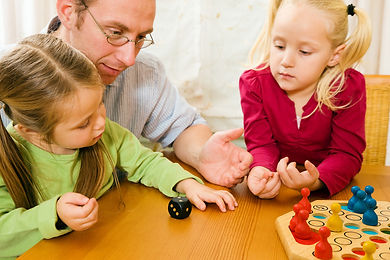

weekly
Wrong date input to Wrong date input
As parents, we all want our children to thrive—academically, socially, and emotionally. But for children with additional learning needs, the path to success can be filled with unique challenges. Whether your child has autism, ADHD, developmental delays, or other cognitive or communication difficulties, finding the right support can make all the difference. That’s where programs like Cog-Fun come in.
At Supporting Learning for Children with Needs (SLCN), the focus is on empowering children through evidence-based, engaging, and personalized interventions. One such approach gaining attention is the Cog-Fun program, a therapeutic framework designed to enhance executive functioning and self-regulation in children with neurodevelopmental disorders.
Cog-Fun stands for Cognitive Functional Therapy. It’s a structured, goal-oriented intervention developed by occupational therapists to help children with executive function challenges—such as planning, attention, memory, and emotional regulation—develop the skills they need to participate more fully in everyday life.
Rather than focusing solely on deficits, Cog-Fun emphasizes strengths, motivation, and meaningful goals. It’s not just about improving cognitive skills in isolation; it’s about helping children apply those skills in real-life contexts—at home, in school, and in social settings.
Cog-Fun is particularly beneficial for children with:
These children often struggle with tasks like organizing schoolwork, following multi-step instructions, managing time, or coping with frustration. Cog-Fun helps them build strategies to overcome these hurdles in a way that feels empowering and achievable.
The Cog-Fun process typically involves three key components:
Executive functioning skills are the foundation for learning, behavior, and independence. When these skills are underdeveloped, children may experience:
Cog-Fun addresses these issues by helping children understand themselves, set goals, and build confidence in their ability to succeed.
One of the most powerful aspects of Cog-Fun is its emphasis on parent involvement. Parents are not just observers—they’re partners in the process. Therapists work closely with families to:
This collaborative approach ensures that the child’s learning is consistent, supported, and sustainable.
While SLCN offers a range of programs—from inclusive play activities to attention training—the principles of Cog-Fun align beautifully with their mission. SLCN’s focus on individualized support, skill-building, and family engagement creates a nurturing environment where Cog-Fun can thrive.
For example, SLCN’s emphasis on step-by-step teaching, visual aids, and motivating children through achievable goals mirrors the Cog-Fun philosophy [1]. Their programs are designed to meet children where they are and help them grow in ways that are meaningful to them.
Parents who have participated in Cog-Fun often report:
One parent shared, “Cog-Fun helped my son understand why he gets overwhelmed and gave him tools to manage it. Now he’s more confident and willing to try new things.”
If you’re interested in exploring Cog-Fun for your child, here are a few steps to consider:
Every child deserves the chance to learn, grow, and shine. For children with additional needs, that journey may look different—but it’s no less valuable. Programs like Cog-Fun offer a roadmap to success that’s grounded in compassion, science, and real-world application.
At SLCN, the goal is not just to teach skills—it’s to transform lives. By embracing approaches like Cog-Fun, parents can help their children build the confidence, resilience, and independence they need to thrive.
If you’re ready to take the next step, get in touch and discover how Cog-Fun can support your child’s journey.